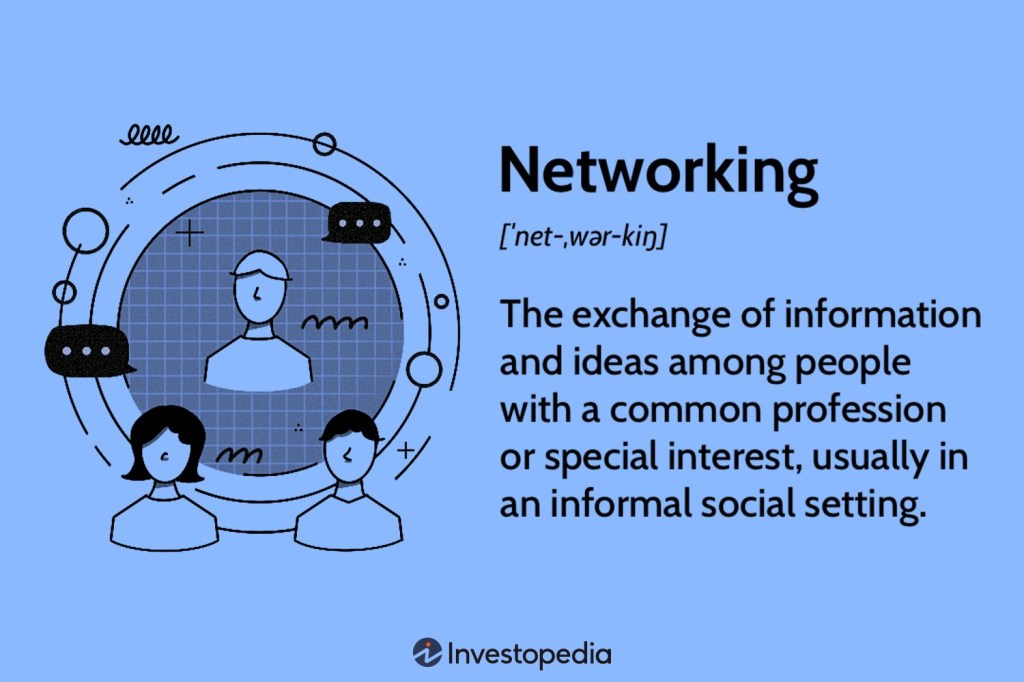Networking: Building Connections for Success
Introduction:
Networking, a term widely used in various fields, refers to the act of establishing and nurturing connections with individuals or organizations for personal or professional purposes. It involves building relationships, exchanging information, and collaborating with like-minded individuals to enhance opportunities and achieve mutual growth. As a passionate reviewer, I have had the opportunity to experience the power and importance of networking firsthand. In this article, I will delve into the intricacies of networking, its benefits, and how it can be leveraged for personal and professional success.
What is Networking?

Image Source: weka.ch
Networking is the process of developing and maintaining a system of contacts to exchange information, ideas, and resources. It involves meeting people, establishing rapport, and seeking opportunities for collaboration, mentorship, and growth. Whether it is through social events, professional gatherings, online platforms, or industry-specific conferences, networking enables individuals to expand their circle and tap into a vast pool of knowledge and expertise.
Who Can Benefit from Networking?

Image Source: liveassets.ca
Networking is beneficial for individuals from all walks of life and across various professions. It is particularly advantageous for professionals, entrepreneurs, job seekers, and students aiming to broaden their horizons, gain insights, and explore new opportunities. By connecting with industry experts, potential clients, mentors, and peers, networking opens doors to valuable connections and collaborations, which can lead to career advancement, business growth, and personal development.
When and Where to Network?
Networking opportunities can arise at any time and in various settings. It can happen informally during social gatherings, conferences, workshops, or even through online platforms such as LinkedIn or industry-specific forums. Additionally, there are dedicated networking events where individuals can proactively engage in conversations, share experiences, and build relationships. These events can be industry-specific conferences, trade shows, or professional meet-ups. It is crucial to seize these opportunities and make the most out of each interaction.
Why is Networking Important?

Image Source: investopedia.com
Networking plays a vital role in personal and professional growth for several reasons. Firstly, it provides access to a diverse range of perspectives, ideas, and experiences, enabling individuals to broaden their knowledge and view things from different angles. It also fosters collaboration, allowing individuals to leverage complementary skills and expertise to achieve common goals. Furthermore, networking facilitates opportunities for mentorship, where experienced professionals can guide and support those who are starting their careers. Lastly, networking helps build a strong personal brand and reputation, which can lead to increased visibility, credibility, and professional opportunities.
How to Network Effectively?
Networking requires a proactive and strategic approach in order to yield fruitful results. Here are a few tips to network effectively:
Set Goals: Define your networking objectives, whether it is to gain knowledge, find a mentor, or explore job opportunities. Setting clear goals will help you focus your efforts.
Prepare Elevator Pitch: Craft a concise and compelling introduction that clearly communicates who you are, what you do, and what you are seeking. This will make a strong first impression.
Attend Relevant Events: Identify industry-specific conferences, workshops, or seminars that align with your interests. Be present in these events and actively engage in conversations.
Be Authentic and Genuine: Networking is about building genuine connections, so be yourself and show a sincere interest in others. Listen actively and ask thoughtful questions.
Follow Up: After networking events, make sure to follow up with the contacts you have made. Send a personalized email or connect through social media to maintain the relationship.
FAQs about Networking:
Q: Are networking events only for professionals?
A: No, networking events cater to professionals from various industries as well as students, entrepreneurs, and job seekers.
Q: Can networking be done online?
A: Absolutely! Online platforms like LinkedIn offer opportunities to connect, engage, and build relationships with professionals across the globe.
Q: How can networking help in career advancement?
A: Networking exposes you to a wide range of professionals who can share industry knowledge, job openings, and potential mentorship opportunities, all of which can contribute to career advancement.
Q: Can networking lead to collaborations and business growth?
A: Yes, networking opens doors to potential collaborations, partnerships, and client referrals, which can significantly contribute to business growth.
Transition Paragraphs:
Now that we have explored the basics of networking, let’s delve deeper into the types, sizes, materials, and other important aspects related to networking. Understanding these details will help you navigate the networking landscape more effectively and maximize your potential for success.
Types of Networking:
Networking can take various forms, depending on the context and purpose. Some common types include:
Professional Networking: Focused on establishing connections within one’s industry or profession.
Social Networking: Aimed at expanding personal connections and friendships.
Online Networking: Utilizing digital platforms to connect and engage with professionals worldwide.
Community Networking: Building relationships within local communities or specific interest groups.
Size and Scale of Networking:
Networking can be done on both small and large scales. It can range from one-on-one interactions, such as informal coffee meetings or mentorship sessions, to large-scale conferences, where hundreds or thousands of professionals gather to network and exchange ideas.
The Material and Specs of Networking:
Networking is not limited to any specific material or set of specifications, as it is primarily a process and approach. However, there are tools and platforms that facilitate networking, such as business cards, online social platforms, and email communication.
Networking Requirements:
To effectively network, individuals must possess a genuine interest in establishing connections, a willingness to listen and learn from others, and the ability to articulate their own goals and aspirations.
Tips and Tricks for Successful Networking:
Here are some additional tips and tricks to enhance your networking skills:
Be a good listener and make others feel valued.
Always follow up with the contacts you make.
Attend networking events with a positive and open mindset.
Build and maintain an online presence on platforms like LinkedIn.
Offer help and support to others whenever possible.
Benefits and Disadvantages of Networking:
Networking comes with a multitude of benefits, including:
Access to new job opportunities and career advancements.
Knowledge sharing and learning from industry experts.
Development of valuable relationships and collaborations.
Increased visibility and professional reputation.
However, there can also be disadvantages, such as:
Feeling overwhelmed with maintaining a large network.
Investing time and effort into relationships that may not yield immediate results.
Potential for encountering individuals with ulterior motives.
Conclusion:
Networking is a powerful tool that can open doors to opportunities, foster personal growth, and drive professional success. By actively engaging in networking activities, individuals can build strong relationships, gain valuable insights, and expand their horizons. The key lies in approaching networking with authenticity, curiosity, and a genuine desire to connect and contribute. Embrace networking as a lifelong journey, and watch as it transforms your personal and professional life.